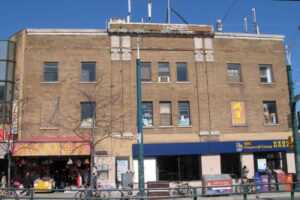Nestled within the vibrant city of Vancouver, a culinary revolution has been simmering. The city, famed for its picturesque landscapes and bustling urban life, has taken a stride toward embracing the local food movement. Let’s delve deep into the creation of Vancouver’s very first local food hub.
Why a Local Food Hub in Vancouver?
Ever found yourself pondering, “Why not source food from around the corner rather than miles away?” That’s the question Vancouver’s residents and culinary experts started asking. With its lush greenery and fertile land, the region is a treasure trove of farm-fresh produce. By setting up a local food hub:
- Community Connection: We’re not just talking veggies and fruits here, but a sense of togetherness. When folks get their grub from local farmers, there’s a deeper connection to the community.
- Reduced Carbon Footprint: Forget those diesel-guzzling trucks carting in food from afar. With local sourcing, we’re cutting down on those CO2 emissions big time.
- Boosting Local Economy: Every dollar spent locally means support for Vancouver farmers, and the city’s economy gets a well-deserved shot in the arm!
Journey to Building the Food Hub
Now, let’s spill the beans on how Vancouver’s first food hub came into existence.
- Brainchild of Visionaries: A group of green-thumbed enthusiasts sat down over a cuppa and visualized a space where farmers meet consumers directly.
- Finding the Right Spot: Vancouver’s vast landscapes offered a platter of choices. After a lot of scouting and perhaps a few heated debates, they earmarked a spot that was accessible to all.
- Gathering the Troops: Local farmers were looped in. There was initial skepticism, but seeing the vision and potential benefits, they jumped aboard the food hub express.
Challenges and How They Were Overcome
Every rose has its thorn, right? The road to setting up the food hub wasn’t without its hiccups.
- Regulatory Hurdles: Every city has its fair share of red tape. Acquiring permits, ensuring food safety standards, and meeting health guidelines were like climbing a culinary Everest. But with determination and expert guidance, these were navigated skillfully.
- Economic Challenges: Finding sponsors and financial backers was akin to finding a needle in a haystack. Crowdfunding, local sponsorships, and government grants came to the rescue.
- Skepticism: Convincing folks that local is indeed better wasn’t a walk in the park. Hosting local food festivals, taste tests, and farmer meet-and-greets turned the tide.
The Food Hub’s Impact on Vancouver’s Culinary Scene
If you’ve ever taken a bite out of a sun-ripened tomato fresh off the vine, you’d know what I’m on about. The local food hub has:
- Introduced New Flavours: Local heirloom varieties, which were earlier overshadowed by commercial produce, found their place in the sun.
- Boosted Culinary Creativity: Chefs started dabbling with fresh, organic, and local ingredients, leading to the birth of unique, mouth-watering dishes.
- Set New Trends: Farm-to-table isn’t just a fancy term but a way of life in Vancouver now. From cafes to fine dining, the city’s eating joints have embraced local sourcing with open arms.
A Peep into the Future: What’s Next for Vancouver’s Local Food Movement?
Well, the ball’s rolling, and there’s no stopping now! With the food hub’s undeniable success:
- More Hubs on the Horizon: The success of the maiden food hub has inspired talks of more such setups sprouting around Vancouver.
- Educational Initiatives: Plans are afoot to introduce local food education in schools. Young minds will learn the importance of local produce and sustainable living.
- Tech Integration: Imagine an app connecting farmers to consumers directly, or drones delivering fresh produce right to your doorstep? It might sound like sci-fi, but with rapid tech advancements, such innovations are on the horizon.
In the grand scheme of things, Vancouver’s first local food hub is more than just a marketplace. It’s a testament to a community’s resolve to embrace sustainability, support local talent, and indulge in gastronomic delights, all while keeping it close to home. So, the next time you bite into a crisp apple or savour a bowl of fresh salad, take a moment to appreciate the journey behind it. After all, good things come to those who eat local!








